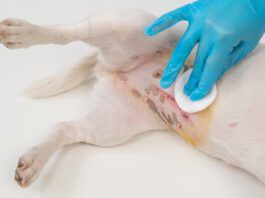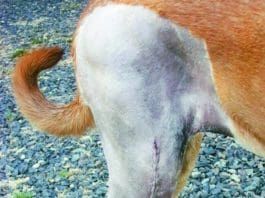What You Should Know Before Your Dog Receives Anesthesia
Advances in anesthesiology have made this life-saving medical tool safer than ever. Prior to administering an anesthetic and performing an elective surgical procedure, a veterinarian will examine your dog completely to determine if she is in general good health. Usually, the veterinarian will draw blood before the day of surgery, especially if the patient is an older dog, or one whose health is compromised by injury or illness. The doctor will check the blood count for signs of anemia or a high white blood cell count that may indicate the dog has an infection.
Regaining What Was Almost Lost
first discovered Petey at their local humane society shelter in 1990. Scheduled for euthanasia the next day
Alternatives to Canine Surgery
I have a young Great Dane named “Bugsy.” I acquired him from a Dane breeder with a good reputation when he was four and a half months old. My only misgiving about the handsome pup was the discovery he had been raised on a terrible food, a brand made with poor quality ingredients and way too much protein and fat for a growing Dane puppy. Though many people think that big dogs must require lots of protein and fat to “grow so big,” giant breed dogs should be fed lower percentages of these nutrients.








